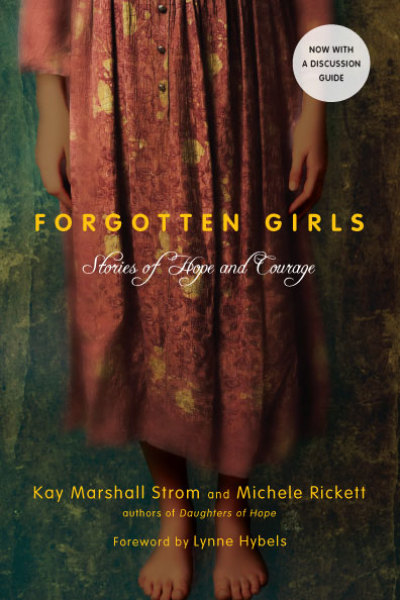From Exploitation to Empowerment of Girls: Why We Must Change the Status Quo
"Boys will be boys, they make mistakes." These terrifying words were spoken by an Indian politician in reference to laws regarding rape.

In the past few weeks, we have been bombarded with news of violence against girls. In California, a gunman went on a killing rampage near a sorority house because women were not fulfilling his desires. In Nigeria, Boko Haram militants tore schoolgirls away from their families and their education, threatening to sell them as slaves. Most recently, the two Indian girls, mentioned above, were raped and killed while going to relieve themselves in the forest because there were no bathrooms available to them.
In our hurry to dissect these atrocities, which we should, we must not lose focus on the girls who remain at-risk, yet hold the greatest potential for sustainable change. Seeking to understand perpetrators is important, but presents limits to our quest for effective solutions.
Many of the perpetrators of these crimes were written off as unstable madmen. In California, rather than weep for the victims, some called for sensitivity to the gunman's mental health. In Nigeria, the members of Boko Haram are labeled as extremists, because who in their right mind would think that it is better for girls to be sold as slaves than to be full participants in their communities?
However, if we look more deeply at the motives of these crimes, there is a dark cultural undertone which ties them together. These labels of extremism or insanity shift the conversation from cultural to personal. It is high time to remedy the cultural blight of misogyny and gender-based violence. We cannot afford to ignore those who can help bring sustainable, positive change to the status of women and girls around the world.
The keys to changing the mindset of subjugation to a mindset of empowerment are right in front of us. And those Jesus called "the least of these" hold those keys. Women and girls who live under oppression have invaluable insight, considerable motivation and the sheer numbers to transform the mindset of the next generation.
After each of these events, global voices have risen in outrage and grief, and the calls for justice continue to grow louder. However, girls remain subject to violence, slavery and exploitation daily. And they suffer without headlines.
Throughout most of the world, girls suffer on a greater level than any other demographic. In much of the developing world, girls have little access to solid education and have few options for living free from abuse. In Nepal, for instance, deeply impoverished families sell their girls as young as 12 to traffickers, to boost their standard of living. In much of Africa, girls born in villages will be given as child brides before they are 15 years old. These girls have a much higher chance of being abused and contracting a sexually transmitted disease than those who can remain in school or are trained in a valuable trade.

Though the exploitation of girls is prevalent throughout the world, an empowered girl can enact potent change in those around her. This helps to explain why groups such as Boko Haram kidnap girls and why the Taliban attempted to assassinate Malala Yousafzai for promoting the education of girls.
Empowered girls will change the status quo.
The evidence is clear, investing in girls can change the future. Simply keeping girls in school in developing countries would generate hundreds of billions of dollars for troubled economies. If these girls go on to higher education or become entrepreneurs, the impact would be enormous.
A World Bank study found that elevating girls' education could contribute to a country's economic health over their lifetimes adding "up to 68 percent of annual gross domestic product." Beyond economic benefit, other studies have shown that girls who have completed secondary school become healthier, safer young women who will keep their own daughters in school. Imagine that: a whole new mindset about girls within a single generation.
The mindset that fosters violence against girls can be changed, but the conversation has to move us to focus on the young women who can create sustainable cultural transformations. Yes, we join our voices to raise awareness of the plight of girls around the world, all the while laying emphasis on leveraging the potential they have to shift oppressive culture toward empowerment.



























